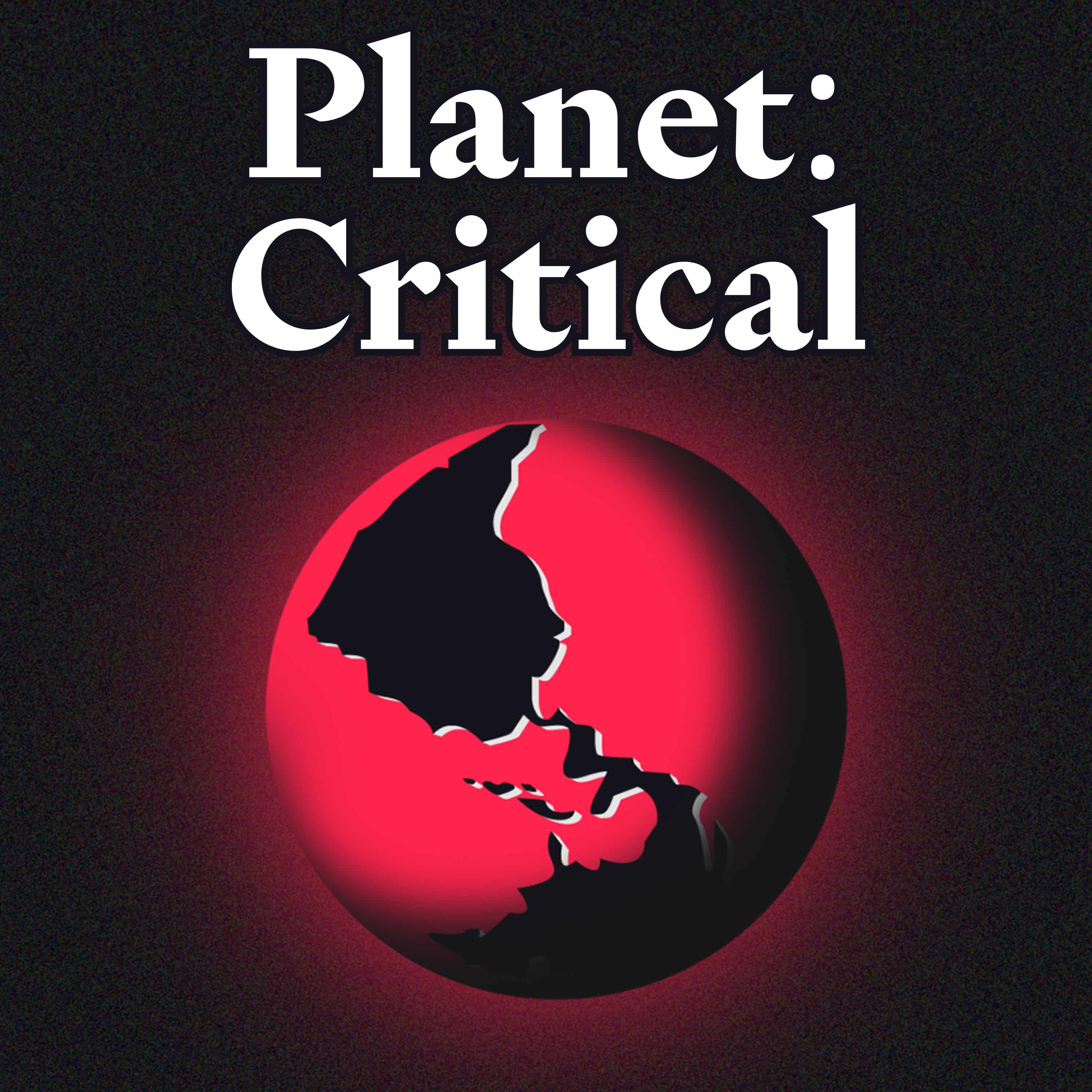

Planet: Critical
Rachel Donald
Planet: Critical is the podcast for a world in crisis. We face severe climate, energy, economic and political breakdown. Journalist Rachel Donald interviews those confronting the crisis, revealing what's really going on—and what needs to be done. planetcritical.substack.com
Episodes
Mentioned books

10 snips
Jun 6, 2024 • 60min
The Symbolic Species | Terrence Deacon
Professor of Anthropology Terrence Deacon discusses the impact of symbols on culture and biology. Topics include the evolution of language, the transformative power of symbols, and the co-evolution of language and human biology. They explore the interplay of AI, globalization, and human bias, and David Sloan Wilson's work in building functional social groups.

8 snips
May 30, 2024 • 1h 13min
Energy Wars | Art Berman
Energy expert Art Berman discusses the global energy wars, shifting geopolitical alliances, human fallibility, and the psychological disposition to immaturity. He explores the historical roots of conflicts, the need for a healthy ecosystem, and the challenges of advocating to end oil use. The podcast also delves into global geopolitical complexities, energy consumption strategies, and the evolution of morality towards functional infrastructures.

20 snips
May 23, 2024 • 1h 33min
The Thermodynamics of Degrowth | Tim Garrett
Tim Garrett, Professor of Atmospheric Sciences at the University of Utah, discusses the thermodynamics of collapse, energy consumption's relation to civilization, and the necessity of surplus energy for growth. Topics include renewables’ impact on fossil fuel consumption, reducing inequality through energy cuts, and organizing a sustainable civilization. The conversation explores declining to recover, challenges in aligning economists and climate scientists, and ethical considerations in societal restructuring.

15 snips
May 16, 2024 • 1h 4min
Reimagining A.I | John Wild
AI researcher and historian, John Wild, delves into the disturbing roots of AI in eugenics and the rush for AGI despite warnings. He discusses reimagining AI as collaborative and decentralized. Podcast explores climate change's impact, unconscious intelligence in organisms, and the influence of cosmism on tech development.

May 9, 2024 • 1h 8min
The Reduction Roadmap | Dani Hill-Hansen
Who takes the initiative when governments fail to ask?Amazingly, in Denmark, an industry is lobbying its government for much tighter regulations to absolutely reduce emissions in order to meet the Paris Agreement. Stakeholders across the entire Danish building industry have agreed to an ambitious reduction roadmap tafter a team of architects undertook an independent review of government policies. They found that global building emissions must be reduced by 96% to limit global warming, and are currently lobbying for an emissions cap of carbon dioxide kilograms per meter squared.I'm joined by Dani Hill-Hansen, sustainable design engineer, architect at EFFEKT, and co-author of the Reduction Roadmap. She explains the findings of their research, the ambitious targets of the roadmap, how they got 540 stakeholders across the industry to sign on, and the methodology of "brand activism" they've developed alongside this project to kickstart other industries across the globe to initiate necessary climate action. This is a public episode. If you would like to discuss this with other subscribers or get access to bonus episodes, visit planetcritical.substack.com

12 snips
May 2, 2024 • 55min
The Politics of Food | Chris Smaje
Chris Smaje, farmer and academic, debates the future of food with George Monbiot, arguing for community autonomy through farming. They discuss challenging the idea of lab-grown food, the importance of maintaining connections to the land, and the political implications of food production. The conversation delves into cultural preservation, rethinking political ideologies, and the potential of small farms for sustainable food systems.

11 snips
Apr 25, 2024 • 1h 31min
Designing Collective Security | Olivia Lazard
Olivia Lazard, an expert in collective security, joins to discuss the urgent need for global collaboration in the face of planetary crises. They delve into the complexities of the Anthropocene, legacy systems of extraction, dematerialization of economies, and the balance of power tipping our planet into crisis.

8 snips
Apr 18, 2024 • 1h 44min
Global Carbon Reward | Delton Chen
Civil engineer and geo-hydrologist Delton Chen discusses the Global Carbon Reward policy, incentivizing emission reduction and investment in mitigation tech. They explore challenges in carbon removal, renewable energy transition, and leadership's role in prioritizing the planet over profits. The concept of a transparent carbon market system is highlighted, emphasizing the need for innovative solutions and global cooperation.

Apr 11, 2024 • 57min
Social Tipping Points | Erin Remblance
Erin Remblance, a degrowth advocate, discusses creating social tipping points for change. They explore challenging power dynamics, think tanks' influence, preserving democracy, and driving societal transformation through shared values. The conversation delves into embedding new values, historical lessons, and the urgency for sustainable strategies amid the climate crisis.

Apr 4, 2024 • 55min
Global Oil Depletion | Alister Hamilton
Alister Hamilton, an expert on global oil depletion, warns about running out of oil by the 2030s due to increasing energy input for extraction. He discusses the Energy Return On Investment (EROI) and how accessing lower-grade oil will lead to oil reserves being inaccessible worldwide. The urgency of transitioning to renewable energy is emphasized to prevent a global crash.


